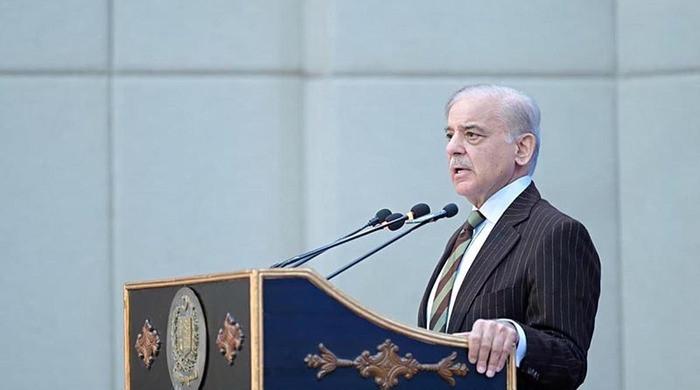Timely action, large-scale testing best strategy to deal with coronavirus
Coronavirus outbreak has sent the world into a frenzy and created panic worldwide
April 19, 2020

The coronavirus outbreak has sent the world into a frenzy and created panic worldwide as it does not differentiate between age, gender, religion, and creed.
A special report published in The News has highlighted that according to medical experts, people over the age of 55 are the most vulnerable to the virus. The report highlighted that those with underlying medical conditionals are the most susceptible to the disease.
New York-based Pakistani health professional Dr Mahim Akbar shared that most of her coronavirus patients had contracted the virus from someone in their family or friends. She added that a significant number of such patients were also diabetic.
Dr Akbar highlighted that people in their 20s, 30s or 40s have also been diagnosed with the coronavirus, but the elderly are more prone to the complications of the disease. She shared that that doctors have to take an urgent decision on putting an elderly patient on a vent if their oxygen level is not satisfactory.
The doctor explained that those who have a weak immune system are also unable to recover from this stage. In some cases of extreme complications, patients of COVID-19 may also suffer a heart attack, she added.
No of male victims higher than women
The special report highlighted that compared to women more men have contracted the coronavirus, all over the world not just in the US. However, the World Health Organisation says that people of all ages and genders should take some precautionary measures against the disease.
Strategy against COVID-19
The experts have emphasised that social distancing enforced through lockdowns was the only way to help slow down the spread of the virus.
However, Dr Michael Merson, professor of global health at Duke University in the US, says it is too early to determine if the strategy of flattening the curve was sustainable in the long run or what could be the next plan of action if the virus strikes again.
The professor stated that all the countries should closely monitor the situation in China’s Wuhan city, the origin of the virus, to check how things have been unfolding thereafter the resumption of social activities.
Successful models
The publication reported that there have been a handful of countries that have managed to combat the pandemic effectively.
China ensured that people in Wuhan and other places affected by the contagious disease were tested for it and that the suspected patients were quarantined at government-run facilities.
China deployed doctors, lab workers and paramedical staff from all over the country to the virus epicentre, to ensure that the entire population of the city was tested. To make the lockdown effective, the Chinese government ensured that the families receive food at their doorsteps.
Also read: Europe's coronavirus death toll tops 100,000
South Korea, Germany and a few others have also succeeded in limiting the number of coronavirus-related deaths. The News reported that all these countries carried out tests, traced the contacts of confirmed and suspected patients, and monitored the patients through a mobile application.
South Korea, Singapore, Hong Kong and Japan used lessons of their past experiences against viral infections to deal with the current pandemic. Singapore and Hong Kong were among the worst-affected countries due to the SARS epidemic in 2003, whereas life in South Korea had come to a standstill due to the spread of MERS in 2015.
Mistakes by US, Italy
The publication reported that there was a day’s difference between the US and South Korea in reporting of their initial cases. However, the cases in US eventually rose to hundreds of thousands, while South Korea’s timely intervention resulted in 900 cases per day to just 100 new infections.
The reason why South Korea managed to flatten the curve was that it took action in the early stage and carried out tests on a massive scale, highlighted the special report.
Officials in South Korea also managed to effectively trace the suspects and the authorities made sure that all passengers landing on Seoul airport were screened for fever.
Also read: PM Imran expresses fears coronavirus cases may rise by May 20
The South Korean health ministry also instructed the passengers to download the self-diagnosis app issued by it. The passengers were instructed to use the app daily once they reach their destinations and immediately report to the authorities if they developed any symptoms of COVID-19.
Those who were tested positive for the disease were also continuously monitored and people living nearby were also sent an alert on their mobile phones to avoid contact with the patients.
South Korean authorities also introduced drive-through testing services to make it easy for the people to undergo a COVID-19 test. Korean kits that detect the virus in 10 minutes were later imported by the US.
Originally published in The News












